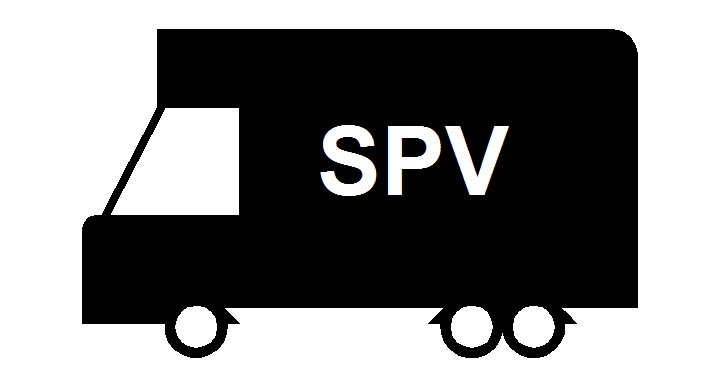Thank you to Pixbay.com for great, free stock images!
What is a Convertible Note?
As per Companies (Acceptance of Deposits Rules), 2014” Convertible Note” means an instrument evidencing receipt of money initially as a debt, which is repayable at the option of the holder, or which is convertible into such number of equity shares of the start-up company upon occurrence of specified events and as per the other terms and conditions agreed to and indicated in the instrument.
Who can issue convertible note?
As per Companies (Acceptance of Deposits Rules), 2014, only startups recognised by the Department for Promotion of Industry and Internal Trade (DPIIT) and receiving investments exceeding INR 25,00,000 from a single investor in a single tranche can issue convertible notes.
What is the Conversion rate of convertible notes?
This specifies how many equities shares each convertible note converts into during the subsequent financing round. For instance, a conversion rate 1:1 means one convertible note converts into one equity share.
What is the discounting?
This percentage reduction is applied to the price of shares issued in the subsequent financing round when converting the convertible note into equity. It incentivises early investment by offering a lower price for shares.
Example-
Assumptions-
- Mr A invested 1 Cr in convertible notes at a 20% discounted valuation.
- The company’s valuation at the time of conversion is 10 Cr.
- B is investing 1 Cr in equity shares in the financing round.
Conversion Calculation for Mr. A-
Initial investment: Mr A invested 1 Cr.
Discounted valuation: A 20% discounted valuation means Mr A’s investment is considered to have been made at 80% of the company’s valuation.
Mr. A’s effective investment = 1 Cr / 0.8 = 1.25 Cr
Conversion price: The conversion price for Mr A’s convertible notes would be based on the discounted valuation:
Conversion price = Valuation at conversion / Effective investment = 10 Cr / 1.25 Cr = Rs. 8 per share
Number of equity shares: The number of equity shares issued to Mr. A would be calculated based on his effective investment and the conversion price:
Number of shares = Effective investment / Conversion price = 1.25 Cr / 8 = 15,62,500 shares
Conversion Calculation for Mr. B:
Investment: Mr. B invested 1 Cr.
Valuation at the time of investment: The company’s valuation at the time of Mr B’s investment is 10 Cr.
Price per share for Mr. B: Mr. B’s investment divided by the valuation:
Price per share = Investment / Valuation = 1 Cr / 10 Cr = Rs. 10 per share
Number of equity shares: The number of equity shares issued to Mr. B would be calculated based on his investment and the price per share:
Number of shares = Investment / Price per share = 1 Cr / 10 = 10,00,000 shares
Here’s a summary in tabular format:
| Investor | Investment (Rs.) | Valuation (Rs.) | Conversion Price (Rs. per share) | Number of Shares |
| Mr. A (Convertible Note) | 1,00,00,000 | 10,00,00,000 | 8 | 15,62,500 |
| Mr. B (Equity) | 1,00,00,000 | 10,00,00,000 | 10 | 10,00,000 |
What are the benefits of the cap on valuation?
This sets the maximum valuation at which the convertible note can be converted into equity shares. It protects investors from excessive dilution of their ownership stake as the company’s valuation increases.
Example-
| Cap value | 10,00,00,000 |
| Pre-money value of the company in the Series A round | 20,00,00,000 |
| Price per share in Series A round | 10 |
Price per share under cap = (Cap on value / pre-money value * price per share in the Series A round)
(10,00,00,000/20,00,00,000) * 10= 5
Accordingly, under this scenario, a seed investor will convert his investment into 2,00,000 Series A shares (1,00,00,000/5), compared to the Series A investor who will receive 1,00,000 Series A shares (1,00,00,000/10) for the same amount of investment.
Convertible notes with a discount and a cap on the company value.
In such scenarios, the lower discounted price per share or the adjusted price per share is considered during conversion.
What is the Conversion ratio?
This ratio determines how many equity shares each convertible note converts into, which may be adjusted based on factors like anti-dilution provisions or stock restructuring events.
What is the Interest rate?
Convertible note holders may receive interest, typically negotiated as part of the terms. Interest can be cumulative or non-cumulative and may be payable at maturity or convertible into equity.
What is the Convertible Note period?
This is the duration for which the convertible note remains outstanding before conversion into equity or repayment. It typically ends upon maturity or conversion into equity during a subsequent financing round.
What are the repayment options available?
Investors may have options regarding repayment of the convertible note, such as seeking repayment at maturity or converting the note into equity. However, repayment options are not commonly exercised in startup financing unless specified in the terms of the note.
Is a valuation required to issue convertible notes?
A valuation report is not required when issuing a convertible note. It is to be noted that a valuation report is mandatory at the time of issue of shares on conversion.
After subscribing to a convertible note, its holder can either convert or redeem the note upon completion of 10 (ten) years or the occurrence of certain events contemplated in the convertible note agreement. Upon opting for conversion, the holder shall receive equity shares at a pre-determined valuation, and the startup entity will have to undertake necessary steps to issue shares as prescribed in the applicable laws. Additionally, since a convertible note is a debt (until converted), the holder cannot exercise conversion and opt for redemption. A conversion ratio of a convertible note is to be determined either:
- Based on a predetermined valuation determined at the time of issuance or
- In accordance with the valuation on the date of conversion.
Happy Reading!
Team Businezexcellence




